
Panasonic’s Organic Sensor May Be Complete, But Likely Won’t Be Used
The future of Panasonic's organic sensor, a global shutter technology it has been developing with Fujifilm since 2013, doesn't look promising.

The future of Panasonic's organic sensor, a global shutter technology it has been developing with Fujifilm since 2013, doesn't look promising.

Today my mother-in-law texted me to say, "Can't trust any photo." Why? Kate Middleton.
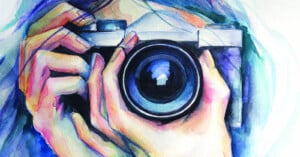
Sight was the first of our senses to be technologically shared in a world we did not witness with our own eyes. Photography—writing with light—has historically meant a one-to-one relationship between what was before a camera (defined as a lens focussing light on a recording media) and what came out the other end, created by a human.

Nikon's surprise acquisition of RED Digital Cinema this week represents a seismic shift in the cinema camera space. It also has far-reaching consequences not only for Nikon and RED but also for the rest of the digital camera industry, including Nikon's biggest competitors.

The Madavor and BeBop saga has seemingly ended, thanks to a new settlement between Madavor's prior owner, Zilpin Group LLC, and the BeBop Channel Corporation. The settlement returns all BeBop-owned properties to Zilpin Group, LLC and cancels outstanding liabilities.

AI image generators are trained on millions -- even billions -- of photos. It is safe to assume the vast majority of these photos are copyrighted and used without permission.

Apple appeared content to sit by the sidelines as the AI craze took the tech world by storm last year, but that has changed. Apple is all in on AI, and it seemingly happened in the blink of an eye.

The 10-year anniversary of Ellen DeGeneres' internet-breaking Oscars selfie reveals just how much photo culture has changed.

This past week, the PetaPixel team came across an opinion on a photography blog that we didn't think was fair. In short, it argued that all "small sensor cameras suck," which is just not true.

A child's online privacy has long been a concern for parents and guardians, and even law enforcement. It is a topic mired in debate, and it's also an ever-changing technological landscape thanks to new AI tools. Wading into the complicated situation is freelance writer Hannah Nwoko in a new piece for The Guardian.

Lapse is the latest analog camera app to see a great deal in funding, but it's rarely a bet worth placing.

Famous memory card maker Lexar announced its (now outdated) 2024 roster of "Lexar Elite Photographers" this week, and many online commenters quickly noticed something each of the seven photographers have in common: They're all men.

In 2016, Adobe developed a technology that was best described as "Photoshop for audio." It would be able to change words in a voiceover simply by typing new words. Sounds scary, right? It was, and Adobe never released it -- for good reason.

During Sunday's Super Bowl commercials, a set of incredible photos were seen by some 123 million people. Regardless of where you stand on the Jesus-themed ad, it was a pretty cool moment for photography.
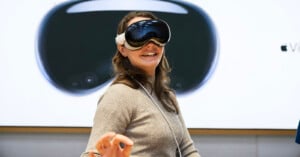
I can be called an Apple fanboy. I'd push back on the notion that I love everything the company does but for better or worse, I'm ingrained in the Apple ecosystem and have been for more than two decades. So naturally, I've been eagerly awaiting the Apple Vision Pro.

In a recent interview, a Samsung executive attempted to gaslight us all by saying that no photo is really "real."
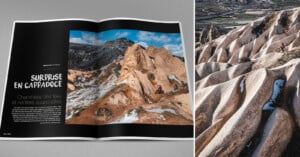
My name is Martin Bissig and I am a Canon Ambassador and a professional photographer from Switzerland. My previous work has been published in over 30 countries and I work for national and international clients around the world.

The OM-1 Mark II has landed with more of a whimper than a bang. It's a great camera but there's not much new about it. However, the rush to pass judgment on what the lack of novel features means for the future of OM System and Micro Four Thirds at large is premature.

Samsung often touts its ecosystem of devices as a boon to productivity, especially when you combine its smartphones, tablets, and laptops together. But how truly effective is it? And is it too intricate to be more adaptable?

Following DPReview publising its Sony a9 III studio test shots, PetaPixel wrote about our hands-on experience with the a9 III's image quality. We wanted to add more context to that discussion, even if it spoils parts of our impending review.

When it comes to protecting its intellectual property, Canon is among the most litigious. Whether printer ink or lenses for the RF mount, the company spends significant effort shutting down unregistered third party brands. From the outside looking in, this can come off as petty, aggressive, or even greedy.
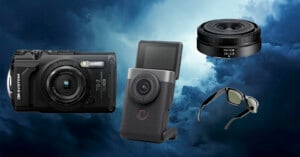
This year included some fantastic new cameras, lenses, and accessories. From the Nikon Z8 and the Sony a7CR to the Canon RF 100-300mm f/2.8 and Sigma 14mm f/1.4 DG DN Art, nearly every camera maker brought something amazing to the table. However, some of them also announced products that slipped through the cracks by virtue of being dreadfully boring, if not outright bad.

Up until recently, most introductory photography classes in colleges and universities still taught students the basics of the medium using film and darkroom processes. These days, though, the majority of schools have transitioned to digital since it is more affordable for students and doesn’t require a lab full of equipment and chemicals. But despite the obvious benefits of digital, analog photography still serves as a valuable tool for learning the medium.

A few months ago, the esteemed German photo printing company WhiteWall introduced new black-and-white specific products into its expansive catalog. I recently tried some of the products with my images and am extremely impressed by the company's craftsmanship.

As we wrap up 2023, a year that featured a ton of incredible photography gear that will undoubtedly feature in many a photographer's kits for years to come, we began to wonder, "What popular photography gear from years past is much less common now?"

Now in its third year, PetaPixel has gathered its team together to guess the things they just know are going to take place over the next calendar year. All of us are, as usual, ready to be very, very wrong.

Like many photographers, I've spent years hunting the impossible combination: a high-quality camera that's also compact. Must haves: a great sensor and a wide aperture wide angle lens. Today, I’ll walk you through the meandering journey that eventually led me to the Leica Q3.
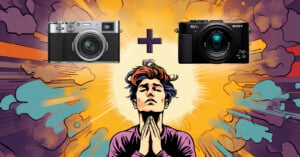
After wrapping our awards, PetaPixel's staff turned its attention to another annual project, "Bold Camera Predictions." The 2024 edition arrives later this week with the help of a special guest, but ongoing internal discussions birthed the camera of my dreams, a Sony RX1R II replacement.

Earlier this week, PetaPixel reported on a remarkable story that scientists AI-generated images from peoples’ brains with “75 percent accuracy.”

Much of the focus on the potential hazards of generative AI technology has understandably been on how it impacts artists and copyright ownership, and how it could affect people's jobs and wages. New research shows that the dangers of generative AI go much further and may be catastrophic for the environment.
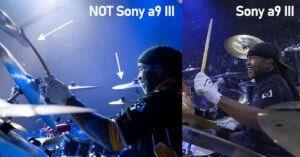
Like most photographers, I’ve never reviewed a piece of gear before. Also like most photographers, I tend to voraciously read reviews each time I consider upgrading. Many of these reviews parse through micro-level analysis of pixel detail, noise levels, and test charts but to me fail to answer the simple question: “will this help me get the shot?”

The Sony World Photography Awards is arguably the most prestigious and largest photo contest. The 2024 edition is open to entries and some of its rules are under fire.
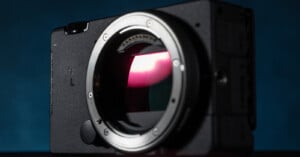
I have always admired Sigma. It wasn’t regarded in the same league as it is today for its lenses until the Art series came out, but Sigma’s digital cameras have always been singular in design and purpose. The family-owned company has never been afraid to try something new, and honestly, that’s something we need to see a lot more of in the photography world.
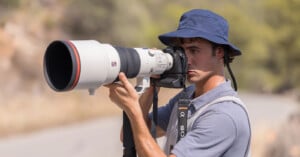
The Sony a9 III is still months away from release but has already sent photographers into a frenzy. The positive buzz around the camera is as high as any camera reveal ever, and with good reason. The a9 III's global shutter system is a complete game-changer for a wide range of photographers and videographers and will enable shots that have long been impossible.
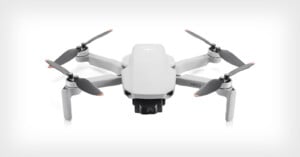
It’s been over two years since DJI released the DJI Mavic 3, an upgrade to their incredibly popular Mavic 2 Pro/Zoom series. In this new form factor, they redesigned the battery to offer a whopping 45-minute flight time, added Occusync 3.0 for better flight distance and stability, added 5.1K video resolution, added an onboard SSD (to the Cine version), and experimented with adding a Zoom lens to capture images and video at different focal lengths.
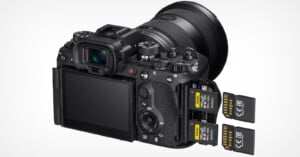
Sony's new a9 III is the first full-frame interchangeable lens mirrorless (ILC) camera to use a global shutter, which unlocks some serious performance like 120 frames per second shooting. It doesn't however, have support for the latest CFexpress specification.

The rise of Generative Artificial Intelligence has been nothing short of revolutionary, impacting every domain from finance to the arts. In the world of photography, GenAI has had a transformative effect, much like the impact photography once had on painting.

This week's Scary Fast Apple event was significant in mostly expected ways. Apple debuted its new M3 series of chips, launched super-powered new MacBook Pro notebooks, and updated the iMac for the first time since 2021. However, Apple also did something unprecedented: it shot the entire event on the iPhone 15 Pro Max smartphone.

AI is all the buzz and it seems to be attaching itself to everything, everywhere, all at once. The canary in the AI coal mine? Images and writing.

Ah, the world of photography – where the line between candid images and artfully contrived scenes grows increasingly hazy. It’s as if the debate about staged photos and their place in photography competitions never quite loses its luster. But wait, we’ve got another gem to share: the revelation of a prize-winning staged photograph in yet another photography competition.